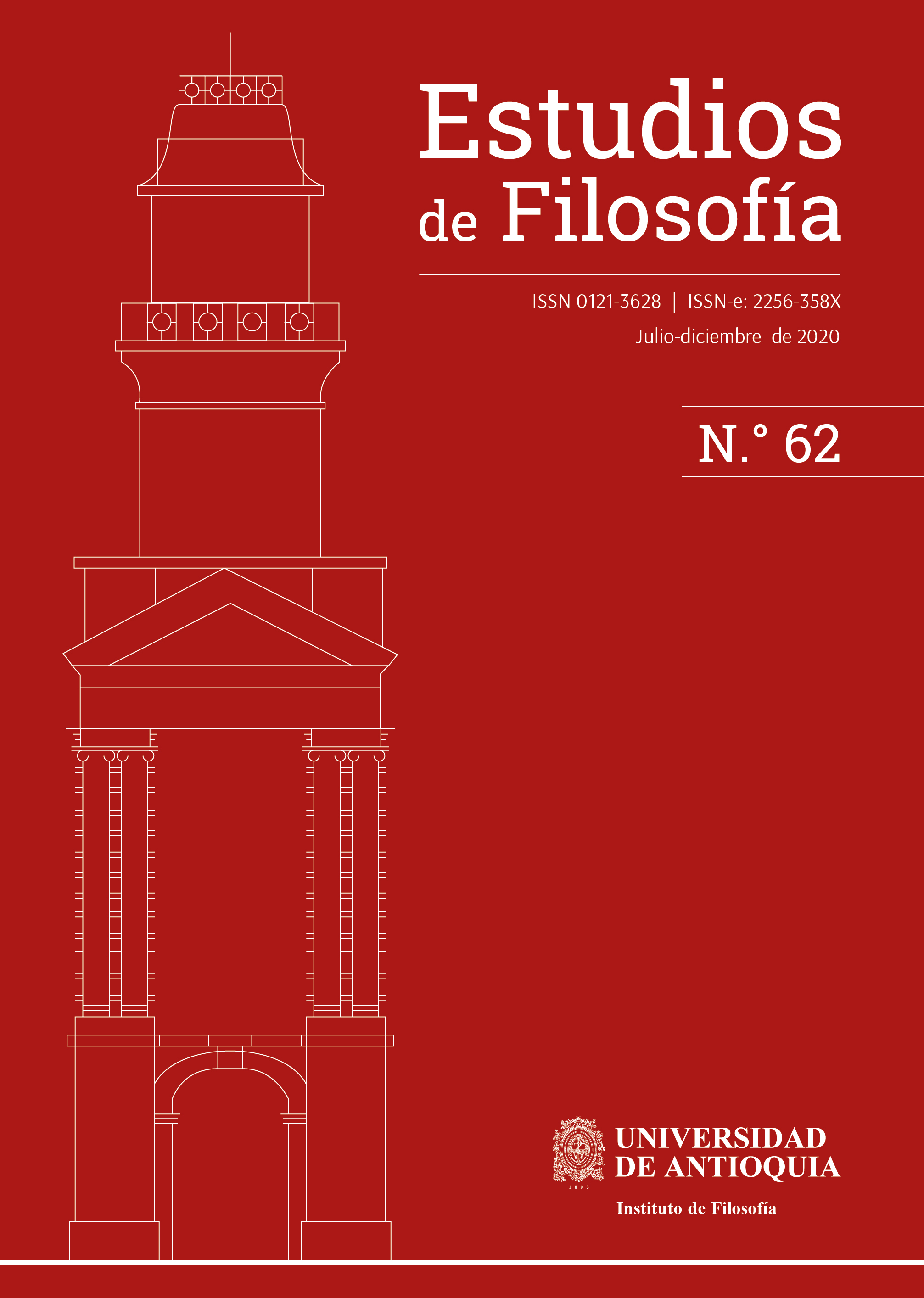Marcuse, H. (2019) Between Phenomenology and Marxism. Philosophical writings
DOI:
https://doi.org/10.17533/udea.ef.n62a12Keywords:
Marcuse, Heidegger, Marxism, PhenomenologyAbstract
Herbert Marcuse's book Between Phenomenology and Marxism. Philosophical Writings 1928-1933 (2019) meets the demand of the author's readers from Latin America and Spanish-speaking readers in general to have a definitive edition of his youthful works. Marcuse had come to us as one of the main representatives of the so-called heterodox Marxism of the 20th century. To his name, we had mainly associated the project of the Frankfurt School and the constitution of a critical theory of society; the rise of the protest social movements of the generation of '68, the founding of a new international left, as well as the theoretical analysis on the domination of needs and desires in advanced industrial societies; the attempts to think about the revolutionary class beyond the industrial proletariat and an original proposal for reading the historical-social structure developed by Marx in conjunction with the historical-subjective one developed by Freud. Works such as Reason and Revolution (published in 1941) and Soviet Marxism (1958) laid the foundations for a new interpretation of the dialectic of Hegel and Marx and the denunciation of the sclerotized forms of Marxism in the ideological guidelines of the Soviet Union.
Downloads
References
Hoyos Vásquez, G. (1980). Fenomenología y marxismo en la obra de Herbert Marcuse. Ideas y Valores 29(57-58), 2-22. https://revistas.unal.edu.co/index.php/idval/article/view/19339
Hoyos Vásquez, G. (2012). Fenomenología y marxismo en la obra de Herbert Marcuse. En Investigaciones fenomenológicas (pp. 245-272). Bogotá: Siglo del Hombre.
Marcuse, H. (1970). Acerca de los fundamentos filosóficos del concepto científico-económico del trabajo. En Ética de la revolución (pp. 9-54). Madrid: Taurus.
Marcuse, H. (1971). Nuevas fuentes para fundamentar el materialismo histórico. En Para una teoría crítica de la sociedad (pp. 7-72). Caracas: Tiempo Nuevo.
Marcuse, H. (1980). Conversaciones (R. Jaramillo Vélez, Trad.). Ideas y Valores, 29(57-58), 23-67. https://revistas.unal.edu.co/index.php/idval/article/view/19340/20294
Marcuse, H. (2001). Guerra, tecnología y fascismo. Medellín: Editorial Universidad de Antioquia.
Marcuse, H. (2010). H. Marcuse y los orígenes de la teoría crítica (J. M. Romero Cuevas, Ed. & Trad.). Madrid: Plaza y Valdés.
Marcuse, H. (2011). Entre hermenéutica y teoría crítica. Artículos 1929-1931 (J. M. Romero Cuevas, Ed. & Trad.). Barcelona: Herder.
Marcuse, H. (2013). Heidegger y Marcuse, un diálogo a través de cartas (I. M. Loureiro, Trad.). En G. Kaminsky Marcuse. Una introducción (pp. 83-88). Buenos Aires: Quadrata.
Marcuse, H. (2016). Sobre Marx y Heidegger. Escritos filosóficos (1932-1933) (J. M. Romero Cuevas, Ed. & Trad.). Madrid: Biblioteca Nueva.
Marcuse, H. (2019). Entre fenomenología y marxismo. Escritos filosóficos 1928-1933 (J. M. Romero Cuevas, Comp. & Trad.). Editorial Universidad de Antioquia: Medellín.
Wollin, R. (2003). Los hijos de Heidegger: Hannah Arendt, Karl Löwith, Hans Jonas y Herbert Marcuse (M. Condor, Trad.). Madrid: Cátedra.
Published
How to Cite
Issue
Section
Categories
License
Copyright (c) 2020 Juan David Gómez Osorio

This work is licensed under a Creative Commons Attribution-NonCommercial-ShareAlike 4.0 International License.
Authors who publish with this journal agree to the following terms:
1. The Author retains copyright in the Work, where the term "Work" shall include all digital objects that may result in subsequent electronic publication or distribution.
2. Upon acceptance of the Work, the author shall grant to the Publisher the right of first publication of the Work.
3. The Author shall grant to the Publisher a nonexclusive perpetual right and license to publish, archive, and make accessible the Work in whole or in part in all forms of media now or hereafter known under a Creative Commons Attribution-NoCommercia-ShareAlike (CC BY-NC-SA 4.0), or its equivalent, which, for the avoidance of doubt, allows others to copy, distribute, and transmit the Work under the following conditions: (a) Attribution: Other users must attribute the Work in the manner specified by the author as indicated on the journal Web site;(b) Noncommercial: Other users (including Publisher) may not use this Work for commercial purposes;
4. The Author is able to enter into separate, additional contractual arrangements for the nonexclusive distribution of the journal's published version of the Work (e.g., post it to an institutional repository or publish it in a book), as long as there is provided in the document an acknowledgement of its initial publication in this journal;
5. Authors are permitted, and Estudios de Filosofía promotes, to post online the preprint manuscript of the Work in institutional repositories or on their Websites prior to and during the submission process, as it can lead to productive exchanges, as well as earlier and greater citation of published work (see The Effect of Open Access). Any such posting made before acceptance and publication of the Work is expected be updated upon publication to include a reference to the Estudios de Filosofía's assigned URL to the Article and its final published version in Estudios de Filosofía.















